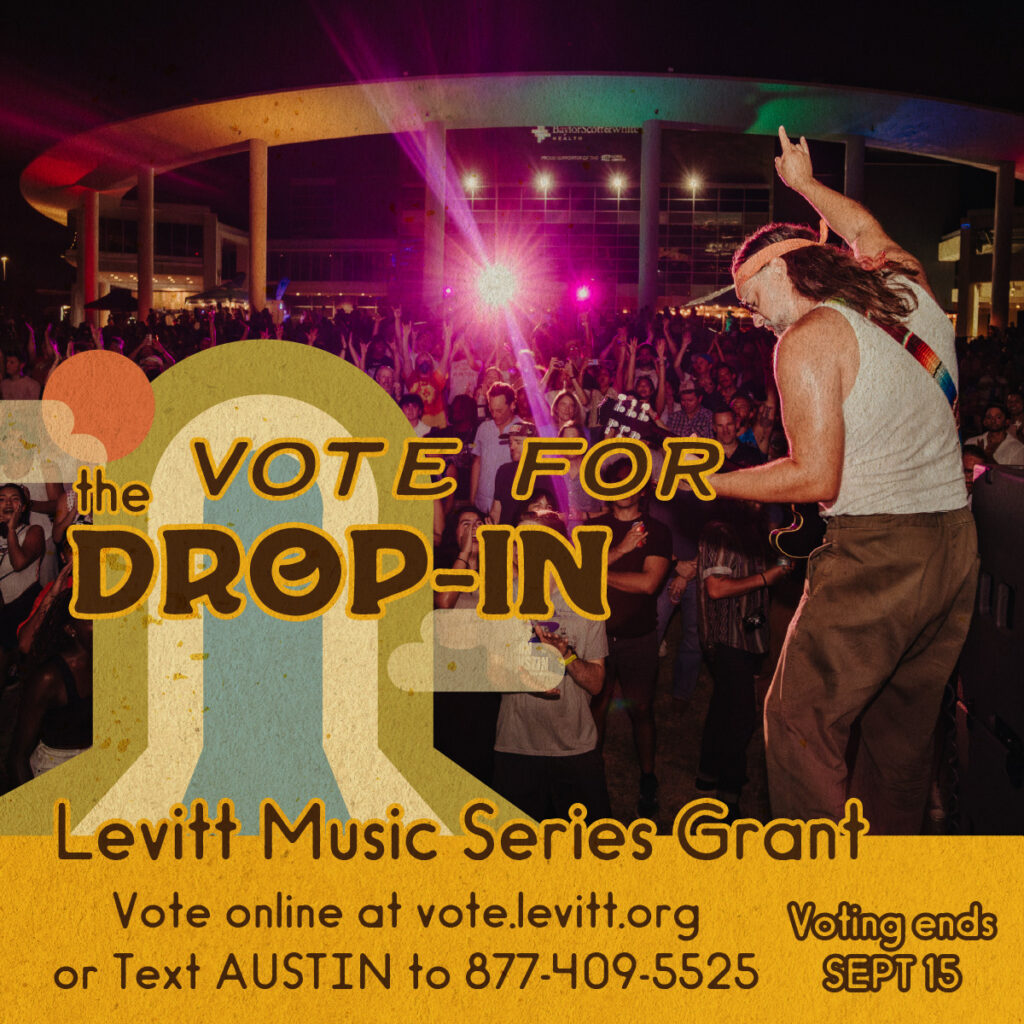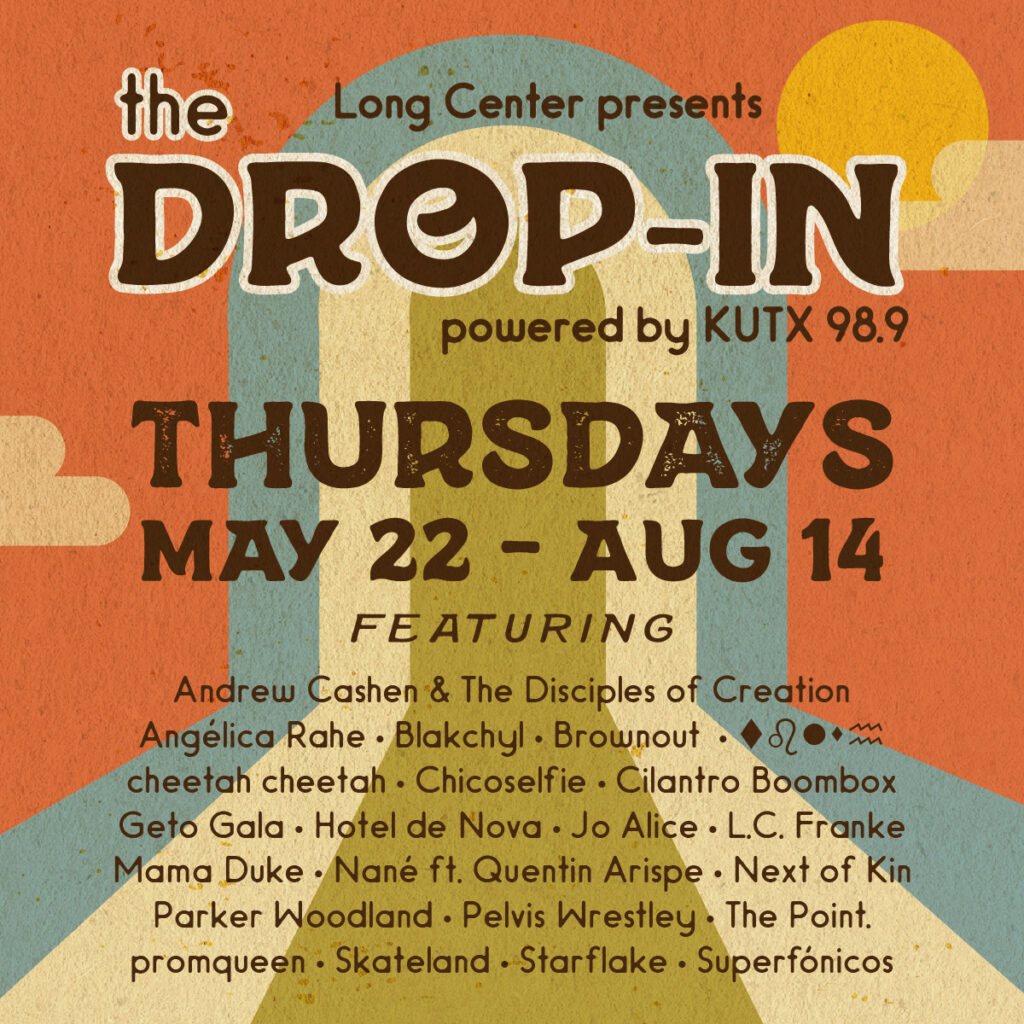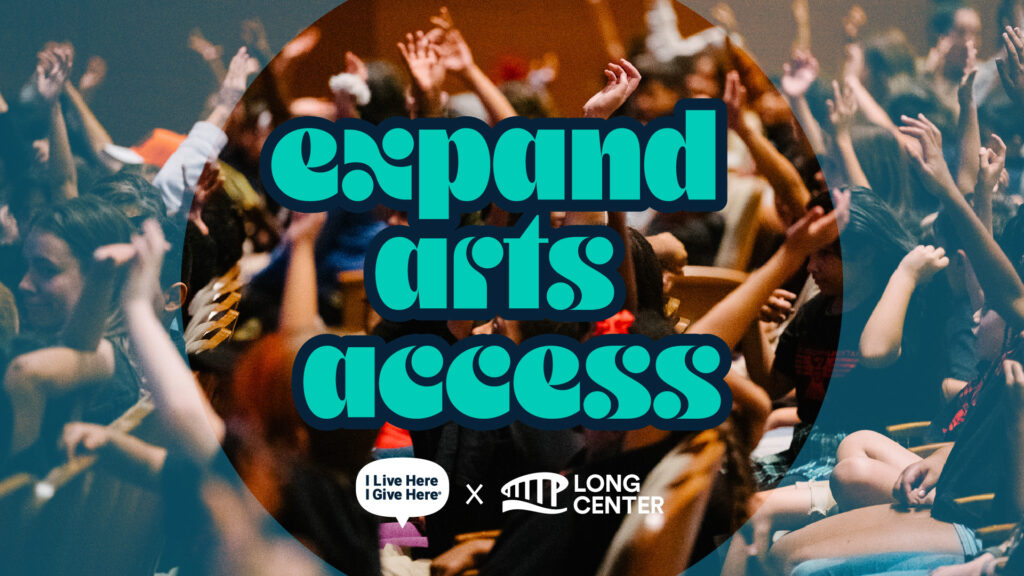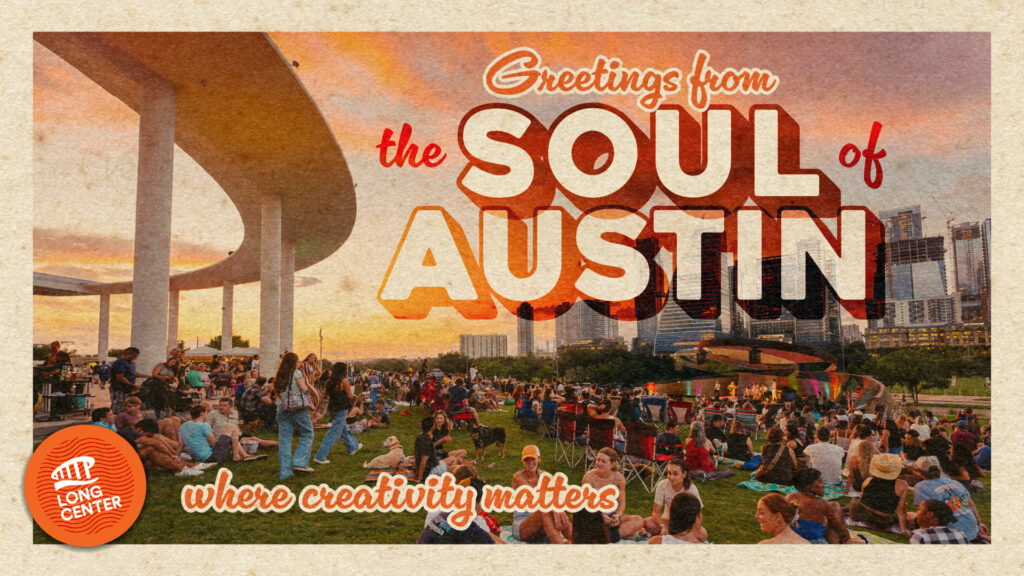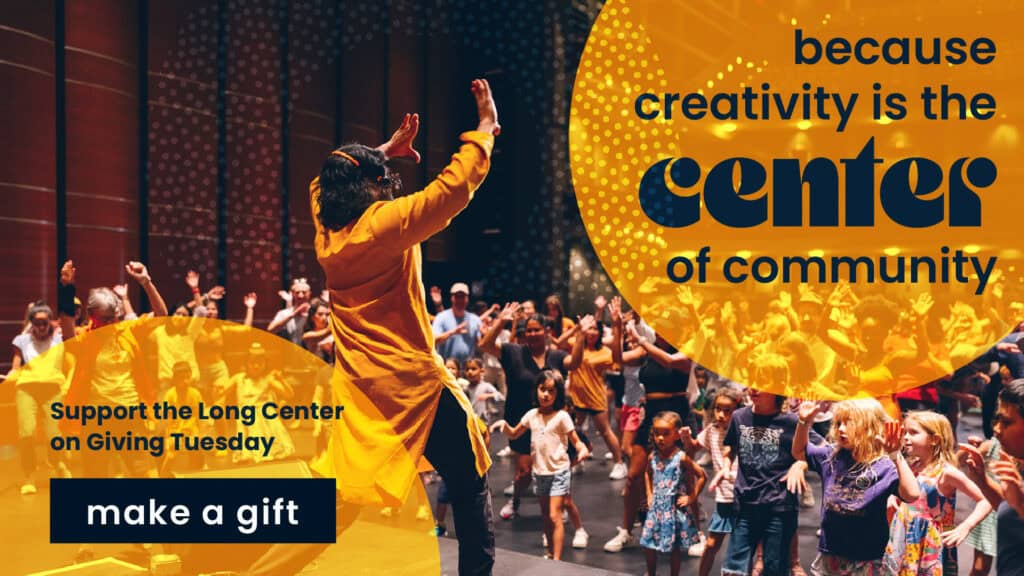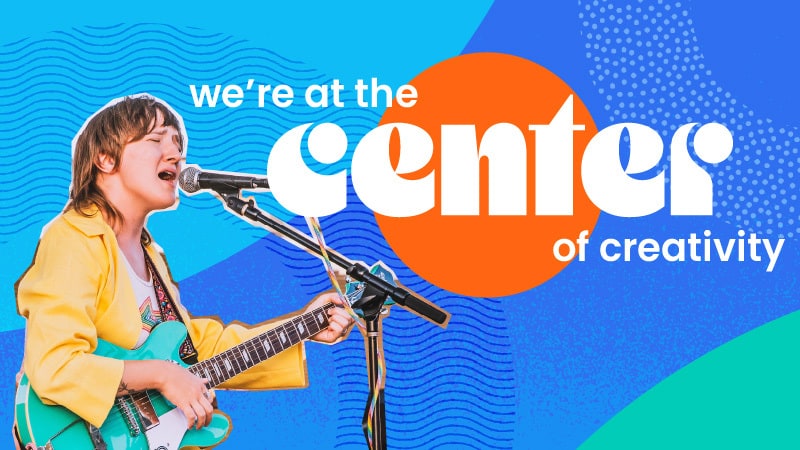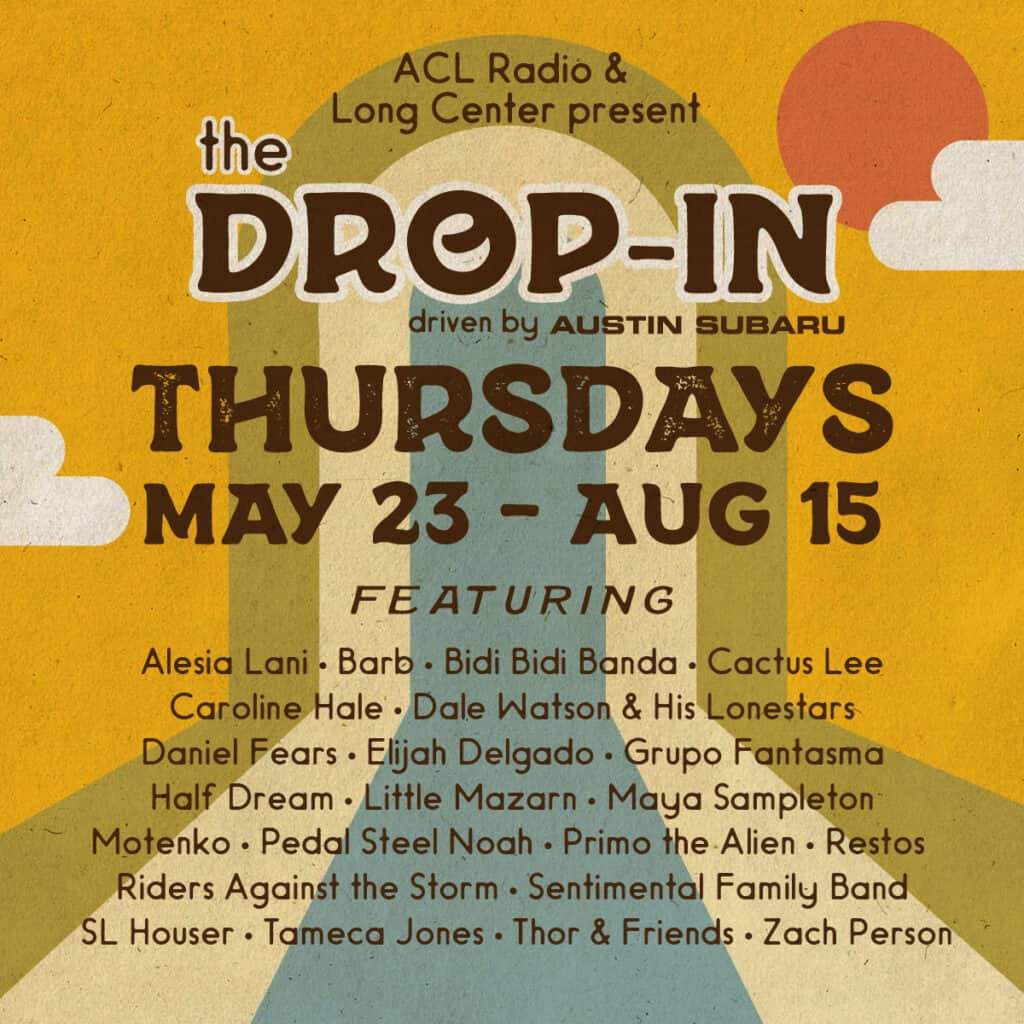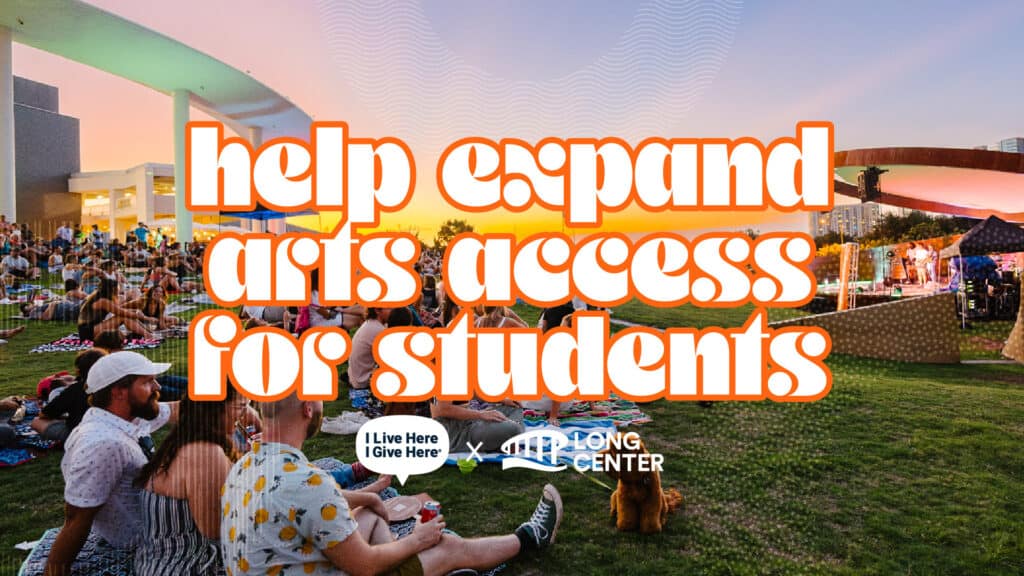Mid-Week Intermission Eclipse Edition: Radiolab’s Molly Webster
If a total solar eclipse had a sound, what would it sound like??
We’ve been waxing about this question at the office so we sat down with Molly Webster, host of science podcast heavy hitter Radiolab, to hear her thoughts on the matter. Catch her live at the Long Center for all things celestial — just wait till you hear her take on the moon — as she hosts Simons Foundation’s Solar Eclipse Party on April 8.
Can we get started with a little bit about you and what you do at Radiolab?
Of course, so I’m Molly Webster and I’m the Senior Correspondent at Radiolab, which means a lot of on-air reporting, specialty topics and specialty projects, and special series that I host and create.
It’s a mix between reporting, some hosting, some sort of special projects managing, team leading… and then having some general knowledge about what’s going on in science that’s built up over the years.
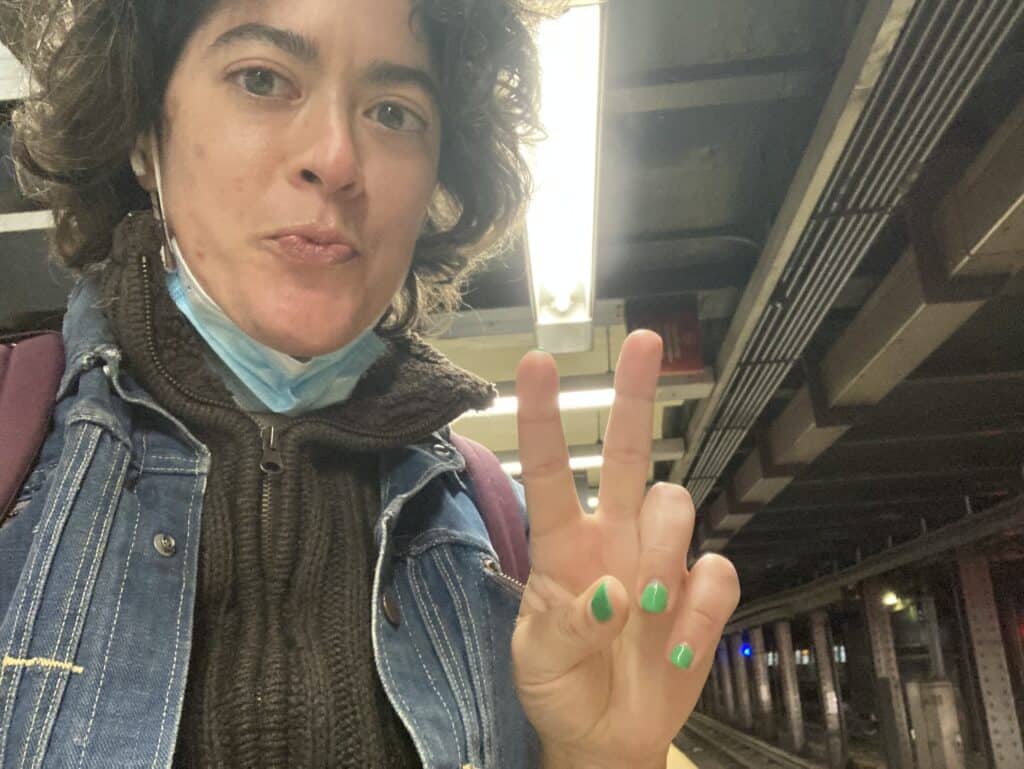
And your background is in science, is that right?
Yeah so I did biology as an undergrad. But I think I basically just loved being like, “why is this thing happening?” I can see it, observe it, explain it. And so whether that’s bodies or plants or the sky or animals — I’m very interested in that.
And then I also was a dancer from when I was little through a lot of college. But the school that I went to for undergrad didn’t have dance, so I ended up doing theatre. So I was kind of a theatre-science nerd.
I do love to dance, as you’ll see if you’re in Austin.
So how did you eventually make it to Radiolab?
That is such a good question. Since I was little I really loved reading National Geographic and the Smithsonian magazines. I wanted to do that or be a dancer — those were my things. And then I thought I wanted to maybe do science research and then do this other thing on the side, which is write for these amazing magazines.
So I finished my undergrad and took a year off — I thought I just wanted to work in coffee shops and sleep on floors or travel or something. So I did that and found this program at NYU that took people who were trained in science and moved them into journalism or communications, the Science, Health, and Environmental reporting program.
My whole thing was I wanted to write for magazines, so I wanted to get back to the Nat Geo/Smithsonian dreams. And I did work at National Geographic — they had this magazine in New York called Adventure (which was my favorite), and I got to write about kayaking and red rock arches. But magazines then and now — this was 15 years ago — have just gotten thinner and thinner and shorter and shorter with less opportunities of actually doing the long form journalism that I wanted to do. And then there was this place called Radiolab, which I’d heard about in my year of working in coffee shops and living off floors. A very good friend of mine said, “You have to hear this show,” and had it on CD, just like 8 episodes or something on a CD-ROM.
So then I was going to New York where Radiolab was, and Science Friday at NPR, and Adventure from National Geographic. I had started writing for dance magazines and cold pitching, and I thought, “I’ll try to get in at Radiolab,” because the magazines just didn’t feel like I had a future there. Radiolab was doing the thing that I wanted, which was long form narrative journalism, science, interest, wonder, curiosity, out in the world. And I really loved traveling, and audio is great because you sort of have to go to a place and actually be there to put a mic in front of something.
And yeah, then I got on the team and I’ve been here, geez, now 11 years. But the show has changed and is so variable day to day that it doesn’t really feel like 11 years.
That’s one of the things we like about Radiolab, too. The variability.
So I always said this to Jad [Abumrad] — I’m a person who gets bored pretty easily. And one of the things that’s very fun about Radiolab is that the very basis of audio has different parts in the cycle of creating a story.
There’s ideation, pitching, coming up with ideas — and then there’s going out and reporting the ideas — and then you have all this audio you’ve collected, all these .wav forms, and then you have to make them into something. And all of those require different levels of extroversion and introversion and different tempos, different ways of interacting with the world. So there’s just a natural variability in the cycle.
When I first started at Radiolab, one of my first projects was trying to name a new mammal that researchers had put together digitally that basically looked like a giant shrew, so we created a life-sized shrew costume that we then hired an actor to wear and walk around the city to engage with people in this ridiculous costume. (The actor being my freelance actor friend.) So we would do these things live and Radiolab really engaged with live shows and events in a super artistic, fun, creative, zany way, way before any audio show did.
I love live events because one of the interesting things about Radiolab is that it’s really been able to connect my performance-theatre-dance-stage background and deep, deep interest and love with science and journalism and audio and storytelling. And I don’t think that would happen at a lot of other places.
Yeah, live events — do you know yet what Radiolab will be doing at the Long Center for the eclipse?
So I’m hosting the stage show the Simons Foundation is producing and putting together. That’s a four-hour event that’s going to have scientists and storytellers and actors. And then what I’m going to do on stage is tell a story of the moon — I think that the moon gets a short shrift during solar eclipses. It’s called a solar eclipse — we’re not even mentioning that the only reason it’s happening is because the moon is going in front of the sun and creating this event for us all to stop and wonder at or ignore, should we choose.
So I’m going to ask the audience to look at the moon a little differently or a little more closely. And then hopefully when they’re watching the eclipse, that combined with actually looking up and seeing the moon, connects them to this celestial body that is close but far.
Radiolab calls itself a “curiosity blender,” and the Simons Foundation’s ‘In the Path of Totality’ initiative is kind of a curiosity blender, too.
Simons Foundation is just such a great foundation to work with. They are so curious, so experimental… they’re very very collaborative partners. In all the years we’ve worked with them and I’ve worked with them, through it all it’s honestly been such a joy. I don’t even have to say that. They’re very good at creatively coming up with concepts and then figuring out how to execute them. We started working with them eight or nine years ago doing special projects as a part of Science Sandbox, another wing of theirs that was going to form popular science programs. They funded two special series and special project teams — the first series we did was Gonads and then the second series we did was G.
‘In the Path of Totality’ is focused on the intersection of science & community around the eclipse. Where do you think Radiolab falls within that intersection?
That’s interesting. I would say Radiolab has always had a community platform, that if anything, right now we’re thinking about how to reengage with. Covid definitely put a damper on gatherings, but as far as community goes, it’s one of the reasons we wanted to do live events originally as a show, to get out to new listeners, to reach people in new ways, to interact with people in person. Right now, we’re doing a big engagement around naming a moon that’s going to start soon, and Simon Adler on our show is doing live events that have been going all around the country that have interactive headphones when the audience is together. So I would say at some level, it’s a fundamental part of who we are.
With that in mind, where do you think art can play a role between science and community?
I feel like that’s a question I’m still learning the answer to every day. I definitely was brought up, even though it doesn’t sound like it, in siloed worlds in that I happened to be a dancer or be in theatre and then also be in science. And so I’ve found myself in a place where all of those things are sort of intersecting. But I think art is the not-so-secret back door into actually getting people to hear what you’re talking about, to learn to engage with the world, to have fun, to feel joy.
Because even a Radiolab episode is art, you know? You’re trying to sound design it, how to pace it, it’s musical, it’s rhythm, and I think that’s one of the reasons it draws in so many listeners. You can do a wonky episode about the moon and you can draw people in with voice and rhythm and pacing and sound design. Yeah, I think otherwise I would just tell people about the moon and it would feel very different. I just feel like art is probably everything.
Podcasting is so audio-forward, and we’re coming together to do something that’s so visual and silent. What do you think about that?
I think silence is sound. And visual. We think about that on the show a lot, which is that the use of silence and pauses are often equally as important as the moments where you do fill the space with sound.
There’s an interesting thing happening at a live event that’s literally live because it’s like a moon and a sun — it’s happening in nature in real time and then you’re bringing all these people together. It’s important to the team that the eclipse moment be quiet and be whatever it needs to be for an audience member. That we don’t try to program that or attach an emotion or a sound or something to it. And so on the stage that day the moments before the eclipse, the totality itself, and the moments after the eclipse will be just like a choose-your-own adventure. Everyone just gets to figure out how to hold themselves and what they want to do in that moment.
And then I think the beauty and the excitement for me and for Radiolab is to then get to be on the stage with them after. That feels like such an honor, that I would get to share the post-moments with a bunch of people and then they can feedback as well.
Have you been to Austin before?
No, I have never been to Austin! I’m so excited. I made a list of cities I can’t believe I haven’t seen but would like to, and Austin’s like the first one. And I have a couple of good friends there, so I’m excited just to be part of the community out there.
Okay, one very important question… If an eclipse were to have a sound, what do you think it would sound like?
Oh, that’s such a good question.
I thought of an opera singer… and a heavy metal person… and silence. And then the moon and the sun and space all having a different character voice. There just has to be a moment where they all make sense together and sound like one thing. And then there’s a moment of chaos and noise. And then maybe these voices that I’ve made up are bowed into silence at some point. They’re almost in awe of themselves because they would be The Sound.
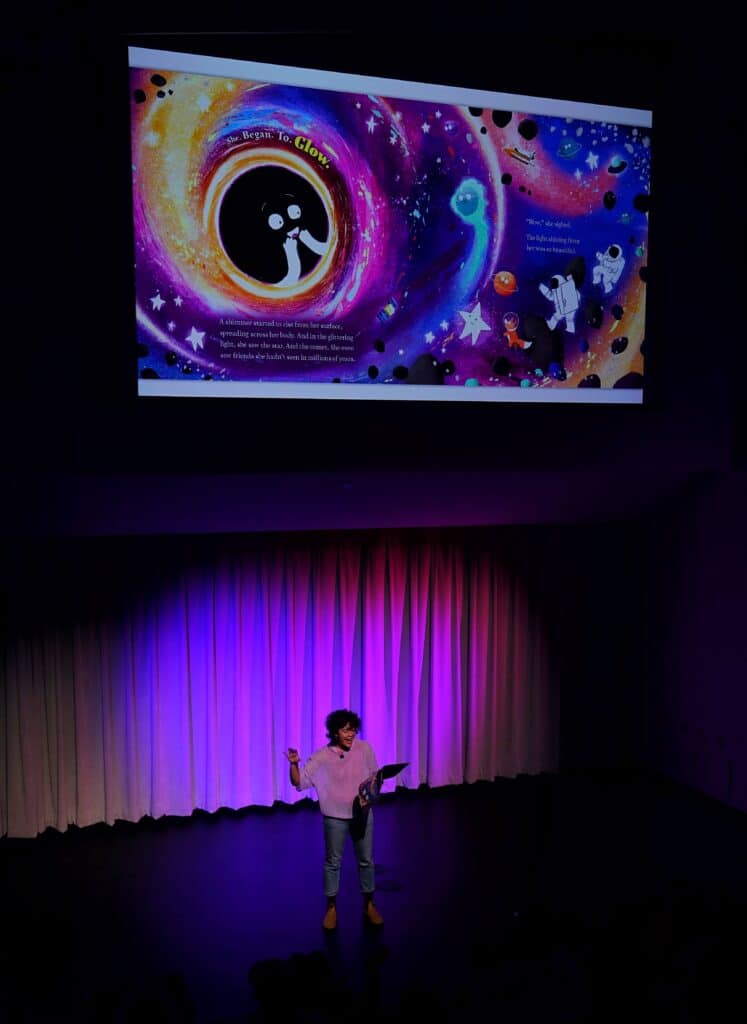
Lastly, and for anybody who’s never listened to Radiolab before, can you suggest a few episodes that you think would make a good introduction to the show?
Classic old school Radiolab with original hosts Jad & Robert would be Colors and Guts. Colors is an all-time favorite and Guts is one of my favorites. It’s actually what made me want to work the show.
New Radiolab, I think anything by Annie McEwen. She did this one about an octopus that is pregnant — Octomom.
A me one that I really like that was the first time I felt like I really found my voice on radio is one called Goo & You, about what happens inside a chrysalis when a caterpillar crawls in. Also The Primordial Journey or X&Y in my Gonads series. Matt’s stuff… Man, I could just keep going on and on. There are so many good ones.
That’s it from Molly for now! Come join us April 8 for more nerdy science stuff from Radiolab, Molly, the Simons Foundation, and your eclipse-obsessed friends and neighbors. We can’t wait. And if you want to check out our personal Radiolab favorites, it’s any time they talk about cicadas.
At the Long Center, we’ve always got a new partnership or something cool we know you’ll want to check out! Find and follow us @longcenter on your social media platform of choice, and we’ll see you real soon.

